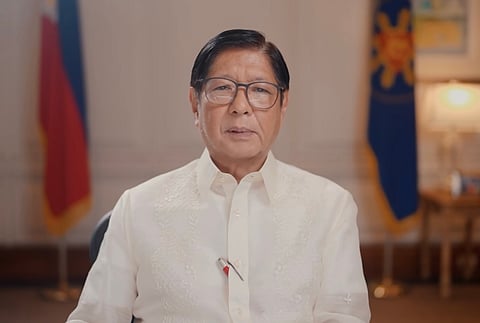
- NEWS
- the EDIT
- COMMENTARY
- BUSINESS
- LIFE
- SHOW
- ACTION
- GLOBAL GOALS
- SNAPS
- DYARYO TIRADA
- MORE

President Ferdinand Marcos Jr. clarified that amid the nationwide rollout of the P20 rice program, the minimum buying price of ‘palay’ should remain at P18 per kilo as set by the National Food Authority and should not depreciate to P8.
“It is untrue that when prices of rice fall, so with the price of palay. We have this minimum buying price. NPA buys wet palays at P18 per kilo, while the dry ones are from P19 to P23. The price of palay will not fall even if the price of rice goes down,” said President Marcos in his vlog on Facebook on Sunday.
The reason why some farmers are forced to sell their palays at a low price is that they do not have drying machinery, according to Marcos Jr. That is why the government is acting double-time to establish drying facilities and rice processing plants throughout farming regions.
“This will greatly help the farmers to dry their yields; therefore, they will not be forced to sell their wet palays at a lower price,” Marcos Jr. stated.
Last week, Palace spokesperson Undersecretary Claire Castro urged farmers to sue abusive traders and middlemen taking advantage of the ‘Benteng Bigas Meron Na’ rice program of the Marcos administration, as buying palay for as low as P8 connotes economic sabotage.
The President maintained that the P20 rice program is here to stay and is sustainable, which is why he is calling on newly installed local government officials, as well as the retained ones, to forget politics and work jointly with the national government for the implementation of the program.
“This is not just pop-up stores that will eventually go. Tuloy-tuloy na po ito sa ating mga Kadiwa Stores para sa vulnerable sectors or to those who badly needs it. It is here to stay, it is achievable…it is sustainable. Watch it out in your nearest public market,” according to the President.
Technology will lure future farmers
As stakeholders in the farming sector worry that there will be no future farmers anymore, as the youth of today are no longer interested, Marcos Jr. said technology is key to luring them into farming.
“We must use technology as youth understands it. One of the examples is the high-tech mobile soil laboratories that we rolled out recently. These mobile soil laboratories would greatly help in the productivity of our farmlands, especially in resolving Climate Change. Another is the rice processing facility that can process from two to three tons of palay per hour. We will continue to provide machinery to ease the processes in farmlands,” the President explained.
He said that an adequate supply of nutritious food will be the yield of an effective and sturdy agriculture system, as the government ensures that there is enough food on the table for Filipino families.
